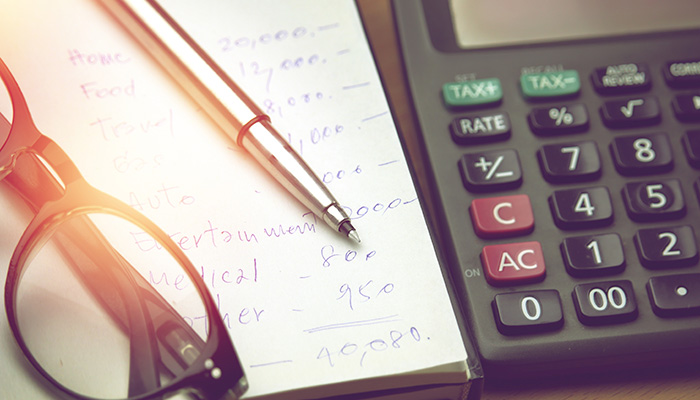All debt can be overwhelming, but there’s no creditor quite as frightening as the all-mighty tax collector. In fact, unfiled and / or unpaid taxes are two of the most common reasons self-employed individuals and sub-contractors seek the assistance of a Licensed Insolvency Trustee.
Whether they’ve received sternly worded correspondence, a knock on the door from a Canada Revenue Agency (CRA) debt collector or are simply tired of carrying that heavy tax burden around, finding out the consequences of not paying up is often an uncomfortable wake up call for many of our potential clients.
Ignorance is Not Bliss
The bottom line is if you have not filed taxes for several years or your tax debt is severely delinquent, you’re on CRA’s radar. The longer you avoid dealing with the situation, the worse it can get.
The anxiety, uncertainty and dread you may be feeling are totally normal. However, CRA will not accept emotions as excuses or valid reasons for ignoring them or your taxes. CRA is meticulous about paperwork, communication and the numerous legal options at its disposal. You’ll almost never have room to argue you “did not know this was happening” or “they never told me”.
What Actions Can CRA Take?
Whether you haven’t filed your taxes or haven’t paid what’s owing, CRA will find you. If you continue to ignore their efforts to reach out and arrange a payment plan — CRA will garnish your wages, freeze your bank account, seize assets or worse.
Garnishment of Wages
Wage garnishment is typically one of the first steps CRA will take to recover tax debt from employed individuals. Your employer will receive a Garnishment Order (or Requirement to Pay) which they must abide by, usually requiring them to withhold 30 percent of your wages for remittance to CRA. Though, this is often a best-case scenario, as CRA has the power to garnish up to 100 percent of your wages.
Garnishment of Receivables
If you have outstanding receivables, CRA can issue a Third-Party Demand to your debtors — redirecting any payments away from your business and toward your tax debt. Of course, you can see how this could financially impact your operations, potentially causing supply, equipment and payroll shortfalls. However, it could also negatively affect your reputation with customers, suppliers and employees.
Freezing Bank Accounts
Freezing bank accounts is one of the most effective tools CRA can use to bring you to the bargaining table and convince you to pay your outstanding taxes.
CRA may issue an official Requirement to Pay to your bank, which your bank must abide by. Not only will you be denied access to the funds in the account(s), but CRA can also seize these funds and continue doing so until you’ve either repaid the debt or made other payment arrangements.
This is usually crippling for a small- to medium-sized business owner. Frozen bank accounts don’t only restrict your access to business funds — depending on how you’ve structured your accounts, you could lose access to your personal funds as well. This can cause immense financial pressure, including missed mortgage, vehicle and monthly bill payments; not to mention, impacts to your day to day cost of living.
Seizure of Assets
CRA can also register liens against any personal property you currently own, along with any future acquired assets. CRA can seize equipment, vehicles and even certain investments without court permission or approval.
CRA’s Superpower
Do you own a home or a building for your business? If so, your property may be at risk. CRA can register on title to your property — and nothing, save for repaying the debt, will remove them from title. This could force you to sell the property to pay the outstanding taxes.
It’s one thing to be nonchalant about taxes when you have nothing to lose. But when your property is at risk, the right advice is essential. A qualified professional can advise you on your options, before CRA registers a lien against any property you own.
Will I Go to Jail?
Some tax offences can result in jail time. However, your offence would have to be seriously egregious to result in incarceration. Some examples include:
- Sheltering unreported income in offshore accounts
- Spending millions of dollars in unremitted payroll deductions on a lavish lifestyle
- Defrauding CRA by falsely claiming GST / HST credits for fictitious corporations
Missing a few years of tax filings or struggling to pay tax debt will not land you in jail. But it’s important to address any potential concerns with a tax professional.
Get the Right Advice
Act immediately at the first sign of issues with your unfiled or unpaid taxes and schedule a Free Confidential Consultation with a Licensed Insolvency Trustee. Together, you can review your situation, discuss your challenges, learn your options and create a plan to tackle your debt — ideally before CRA ever gets involved.
If you qualify, a Bankruptcy or Consumer Proposal can initiate a Stay of Proceedings against any current or future collections action. In most cases, this would lift any account freezes, discontinue any wage garnishments and protect you from future liens or creditors registering on the title of your property. A Licensed Insolvency Trustee can also identify other solutions and strategies to help reduce the stress and worry of outstanding tax debts and give you much-needed peace of mind.
No matter which direction you choose to go, they can point you in the right direction and lead you toward the financial fresh start you need and deserve.


